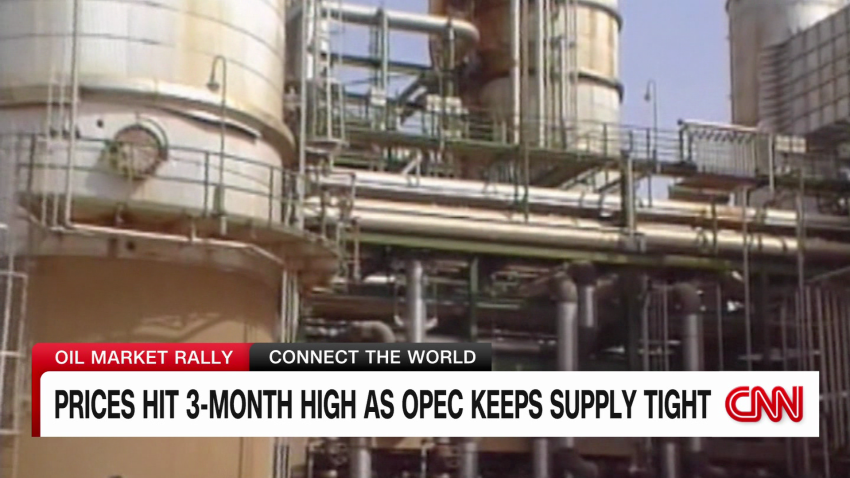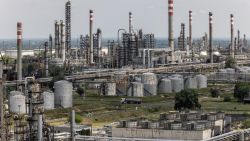Several OPEC+ countries agreed to voluntarily cut oil production by a total of 2.2 million barrels per day in the first quarter of 2024, the oil producing group announced Thursday.
Saudi Arabia, the world’s biggest exporter of crude oil, will lead the effort by extending a voluntary production cut of 1 million barrels per day of oil — previously intended to run till the end of December — by another three months, according to a statement from OPEC+, which comprises the Organization of the Petroleum Exporting Countries and its allies.
The kingdom’s production will stay at around 9 million barrels a day until the end of March 2024, the state-run Saudi Press Agency said, citing “an official source from the Ministry of Energy,” after Saudi officials met with other major oil-producing nations in Vienna Thursday.
In addition to Saudi Arabia, the following voluntary barrel-per-day production cuts were announced: Russia by 500,000; Iraq by 223,000; the United Emirates by 163,000; Kuwait by 135,000; Kazakhstan by 82,000; Algeria by 51,000 and Oman by 42,000, OPEC+ said.
The group also announced after the meeting that Brazil, another major oil producer, will join at the start of next year.
Brazilian Minister of Mines and Energy Alexandre Silveira told OPEC+ members on Thursday he received President Luiz Inacio Lula da Silva’s stamp of approval to join, pending a technical review of the charter for cooperation.
Reuters on Friday quoted the CEO of Brazil’s state-owned oil company Petrobras as saying that the country’s production would not be determined by OPEC quotas.
On Thursday, Brent crude, the global oil benchmark, and West Texas Intermediate crude, the US benchmark, settled 0.3% lower at $82.83 a barrel and down 2.3% at $75.96 respectively. The contracts traded at around $84 and $79 before the OPEC+ meeting.
The ministerial meeting had originally been scheduled for Sunday, but last week the group postponed it until Thursday, without providing a reason.
Some media reports, citing unnamed OPEC+ sources, said the delay was due to disagreements over the production levels of some members and possible cuts associated with them.
Despite pledges by the group this year to slash output by 3.66 million barrels per day until the end of 2024 — and additional voluntary cuts by Saudi Arabia and Russia — Brent and WTI prices have now fallen 13% and nearly 16%, respectively, since their peaks in late September.
Prices have been pressured by record crude oil production in the United States and worries about waning global demand for the fuel, particularly in China, the world’s biggest oil importer.
— Hanna Ziady contributed reporting.






















